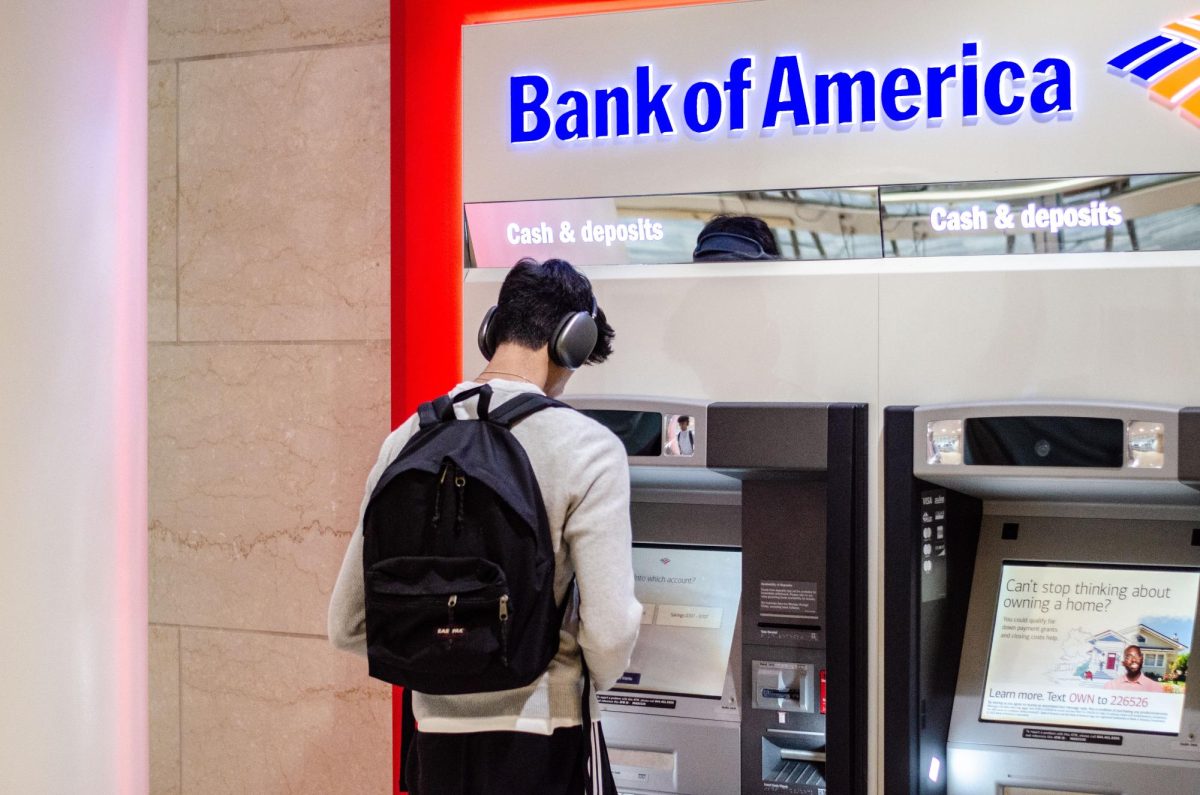For this week’s ‘Advice with the Arts Editor’ segment, I decided to sit down with my friend Sydney Bruenen, who I consider a financial connoisseur. Sydney and I met through work, and since then, we’ve been good friends. She’s 24 years old with two degrees and going to trade school full time at North Bennet Street School in the North End studying Piano Technology.
I didn’t know how much she loved budgeting, however, until we started going out and she would collect receipts for her budgets. She says she’s “just a person who looks at their money,” but she also has taken several courses on financing and reads books about personal finance constantly.
Rena Weafer: What is budgeting to you?
Sydney Bruenen: Budgeting is the process of assessing and managing my finances and using them to create the life that I want.
RW: How did you start budgeting?
SB: I found it on Instagram Reels, honestly. There was always this concept of “budgeting” being thrown around, and I was like, “I don’t want to do that.” Then I saw this budgeting page that had really cute planners and the person would create planners for other people’s finances. Then one day she had a really good sale on her budgeting course, so I bought it. I also was watching @herfirst100k on TikTok simultaneously, so those two together taught the basics. It was really an accident how I started, but the skill grew over time.
RW: Why did you start budgeting?
SB: Budgeting scared me a lot. The idea of opening my Wells Fargo app and checking my bank account made me sick to my stomach, to the point where I would go months without checking it. I had a lot of shame about money because of poverty experiences growing up. When I was younger, I felt like money was something I would never understand, like it was never going to be a good thing.
I started budgeting as a way to take control. I wanted money to be a good thing. Whether I wanted to admit it or not, I wanted wealth. I wanted to build a life that I loved where I didn’t have to worry about money. I tried budgeting as a skill to get me there and it did.
RW: How do you budget? What is your budgeting plan or routine?
SB: Well, I start with my income. I look at the month and I divide it into pay cycles–it’s usually two. I start with the day I get paid and go to the day before my next paycheck. I list all my expenses for the month, starting with fixed expenses like subscriptions, rent and utilities, then variable expenses like groceries, dining out and transportation. After paying all my expenses, I start making money moves.
I first would contribute to my emergency fund, but I’ve already built my emergency fund, so I don’t do that anymore. An emergency fund is three to six months of all living expenses. After that, I pay my debt, starting with the highest interest first. My monthly debt payments are calculated with my expenses, so this is just extra money I am putting toward my debt. I don’t make extra debt payments every month, but I do when I have the extra money.
Then I do my investing, put money in my savings and my family investing. Family investing would be money for kids if I had them, but I use it for birthdays, holidays, dates or anniversaries, presents or any kind of donations.
After all of these are completed, I go to my fulfillment portfolio. First, I put my money in for my priorities, then my luxuries. Priorities would be a hair cut, a new pair of jeans, a kitchen table or travel. A travel priority would be a plane or train ticket if I need it. My luxuries would be anything like entertainment, video games, posters, cute things or travel, but this time the travel would be the extra money I can spend on my trip.
After doing all of this, I take a look at last month’s expenses, and I categorize and track them in a spreadsheet. I also track my net worth, which my SoFi bank app does for me. My total assets minus my total debt equals my net worth.
RW: You talked a little bit about investing. What does that look like for you?
SB: I started saving for retirement through investing. I opened a Roth IRA account and just put in a small amount per paycheck because time is more valuable than the amount of money being put in. What matters is I’m increasing my investments by keeping them where they are.
Since the Roth IRA has a higher overarching yield (higher interest rate) I should be focusing on this first instead of paying off my debt, which has a lower overarching yield. I care more about my debt, though, because I want to set myself up for success. Budgeting is an act of self care. It’s not comfortable. I don’t want to do it. Self care looks like prioritizing yourself, and for me, it’s my financial self.
RW: How can college students incorporate this into their daily routine?
SB: Starting small is the easiest way. Budgeting is very overwhelming in the way it’s laid out. The easiest way to start is to just start looking at it. Open your bank account. Look at your spending. Don’t judge yourself, just notice your expenses and know what you’re spending money on. It can be incredibly uncomfortable, but just the act of noticing is half the battle.
Mental work when it comes to money can be the hardest part. Start dealing with your emotions around money. Look at how it makes you feel and how you want it to make you feel. Find what works for you and find a routine that works for you. Take notice of things you have outstanding, like student loans, interest rates, debts, when you have to make repayments, credit card, credit score, et cetera. Did your parents take out a credit card for you without you knowing? Sometimes that happens.
Start tracking your expenses and put them into categories. Look into opening a high yield savings account. They’re savings accounts with high interest rates. I make $60 to $70 per month on interest alone. That’s a real number. It’s free money.
Start an emergency fund. If you do not build an emergency fund, life will knock you down every time. When I was a kid, our lawn mower broke, and it set us back so far because my mom did not have an emergency fund. You don’t know what life will throw at you. It’s okay to be scared, but you can’t allow your fear to inhibit your success and your growth.
It takes time. It takes time and a lot of practice. I did it wrong for a long time and it was discouraging. In order to be good at something, you have to be bad at it. What matters is you’re trying. It took over two years to get where I am now.
Just focus on building the habit, not on doing it correctly. Money is something that everyone in the world has in common, and we don’t think about it. It’s like the way that we all breathe. It’s not the most important thing, but it’s something we all have in common. That alone is a powerful thing. If you feel alone, it’s important that you know that everyone in the world has felt that way about money. Every single person.
RW: Do you have any resources on how to get started?
SB: The Financial Feminist podcast changed my life. Follow any of these people on Instagram: @raemichelleplanners, @herfirst100k, @thebudgetnista, @babeonabudgetblog, @debtfreemillenial, and so much more. Also these books: “So…This Is Why I’m Broke: Money Lessons on Financial Literacy, Passive Income, and Generational Wealth” by Melissa Jean-Baptiste, “Financial Feminism” by Jessica Robinson, “Women Talk Money: Breaking the Taboo” by Rebecca Walker. I could go on and on.
RW: Do you have any advice for those who struggle with mental health?
SB: Start small and take no shame in doing what you need to succeed. If you have ADHD and you don’t have the patience to sit down at a spreadsheet, then don’t, and find something that will work for you. Use your support system. Money can be scary to talk about with your support system, but it’s worth it.
If you are strong enough to be reading this article and to begin to question your relationship with money, then you have what it takes to be successful with it. Your system is there to help you through it. Take what you need from this interview and leave what you don’t. I use Google Sheets and bought a template online. I put in the numbers and it does all the calculations for me. I don’t have to do any math. I can just copy and paste the numbers from my bank account if I want.
I keep coming back to the fact that I can’t believe that no one talks about it and we all have it in common. It’s crazy. We could be in a room and I could say close your eyes and raise a hand if you struggle with money and everybody’s hand would be up because everybody struggles with this. I would love to talk to everyone about this. My email is sydneynichole929@gmail.com. Please reach out if you have any questions.


